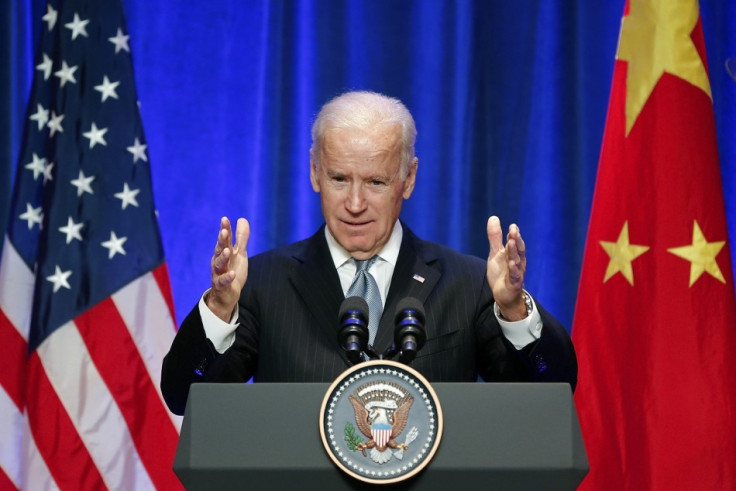US Biden China Visit: Beijing Plays Down Air Zone Row

China's government-controlled media have played down a diplomatic row with the US over Beijing's unilateral imposition of an air defence zone above a disputed part of the East China Sea.
The quarrel was said to have dominated the five-hour talks between Vice President Joe Biden and President Xi Jinping, during an official US visit to China.
However it was dismissed as a side issue by the Global Times newspaper, which said addressing the controversy "wouldn't have taken up much time".
"In China, there are plenty of issues that can be talked about and the ADIZ (Air Defence Identification Zone) is only one of them," the Communist Party's mouthpiece wrote.
The editorial blamed the row on Japan, as the US ally has been long squabbling with China over the ownership of a group of islands, over which Beijing has extended the ADIZ.
"Japan deliberately created a crisis and tried to get the US involved, hoping the US and China will evolve into confrontation," the article read.
"We believe although the US has been clear in opposing China's establishment of the ADIZ, both China and the US can handle this discrepancy.
"Biden is unlikely to show up as an opponent when he is visiting China. But if so, China will not hold back."
The article came after weeks of increasingly hostile rhetoric from China, which went as far as saying it would shoot down aircraft breaching the ADIZ, as the US challenged its authority by flying two military B-52 aircraft through the area.
Regarding the ADIZ Biden said he had "very direct" talks with President Xi Jinping and made clear US concerns.
"China's recent and sudden announcement of a new air defence identification zone has, to state the obvious, caused significant apprehension in the region," Biden said.
Xi said that "profound and complex changes" were underway in Asia. "The world, as a whole, is not tranquil," Xi said.
"During the talks the Chinese side repeated its principled position, stressing that the Chinese move accorded with international law and practice," added Chinese Foreign Ministry spokesman Hong Lei.
"The US side ought to take an objective and fair attitude and respect [The ADIZ]."
China established the ADIZ with the demand that identification and a flight plan had to be provided on all aircraft passing through it.
The area covers islands a group of disputed islands known as Diaoyu in China and Senkaku in Japan, as well as a submerged rock claimed by South Korea.
Washington is tied by a security treaty to provide Tokyo with military support whenever a Japanese-administered territory is under attack.
© Copyright IBTimes 2024. All rights reserved.






